Related Research Articles

Health in China is a complex and multifaceted issue that encompasses a wide range of factors, including public health policy, healthcare infrastructure, environmental factors, lifestyle choices, and socioeconomic conditions.
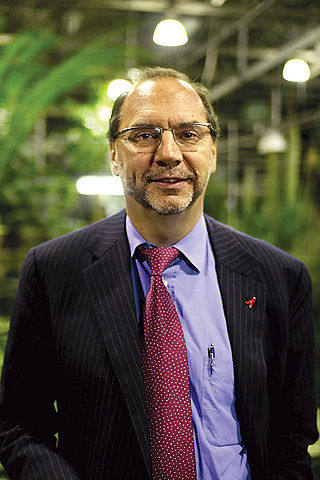
Sir Peter Karel, Baron Piot, is a Belgian-British microbiologist known for his research into Ebola and AIDS.
David L. Heymann is an American infectious disease epidemiologist and public health expert, based in London.

Clifford Martin McKee, CBE, is professor of European public health at the London School of Hygiene and Tropical Medicine.

Oriol Mitjà i Villar is a Catalan-born Spanish researcher and consultant physician in internal medicine and infectious diseases with expertise in poverty-related tropical diseases. He has conducted research at the Lihir Medical Centre in Papua New Guinea since 2010 on new diagnostic and therapeutic tools to eradicate yaws. He was awarded the Princess of Girona Award in the scientific research category. Currently at the Germans Trias i Pujol Research Institute, Mitjà is conducting research on SARS-CoV-2 coronavirus disease (COVID-19) and strategies to control the infection at a community level.
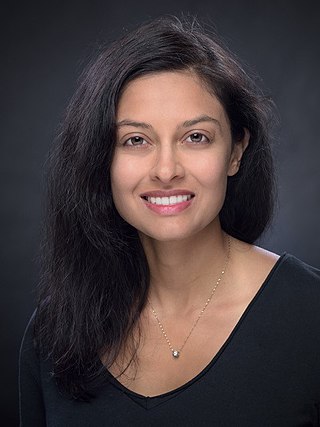
Devi Lalita Sridhar FRSE is an American public health researcher, who is both professor and chair of global public health at the University of Edinburgh, Scotland. Her research considers the effectiveness of public health interventions and how to improve developmental assistance for health. Sridhar directs the University of Edinburgh's Global Health Governance Programme which she established in 2014.

Jocalyn Clark is a Canadian Public Health Scientist and the International Editor of The BMJ, with responsibility for strategy and internationalising the journal's content, contributors and coverage. From 2016 to 2022, Jocalyn was an Executive Editor at The Lancet, where she led the Commentary section, coordinated peer review, and edited and delivered collections of articles and Commissions on topics such as maternal and child health, oral health, migration, end of life care and gender equity. She led the Lancet's project to advance women in science, medicine, and global health, #LancetWomen. She is also an Adjunct Professor of Medicine at the University of Toronto and an Honorary Associate Professor at the Institute for Global Health at UCL.

Catherine Kyobutungi is an Ugandan epidemiologist who currently serves as the Executive Director of the African Population and Health Research Center and a Joep Lange Chair. She was elected to the African Academy of Sciences in 2018.
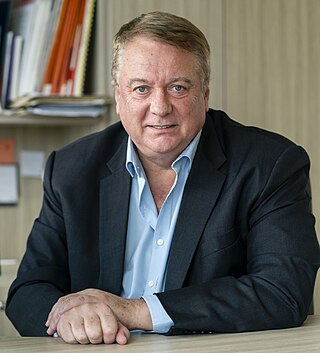
Dale Andrew Fisher FRACP is an infectious diseases physician who specialises in Infectious Diseases and a Senior Consultant in the Division of Infectious Diseases at the National University Hospital, Singapore. He is also a professor of medicine at the Yong Loo Lin School of Medicine, National University of Singapore, and the chair of the National Infection Prevention and Control Committee through the Ministry of Health, Singapore. In 2020, he became group chief of Medicine for National University Health Systems.
Peymané Adab is a British physician who is a Professor of Public Health at the University of Birmingham. She leads the Institute of Applied Health Research Chronic Disease Management Team. Adab investigates the epidemiology and management of obesity and chronic obstructive pulmonary disease.

Pascale Allotey is a Ghanaian public health researcher and the Director of the World Health Organization SRH/HRP. Her research focuses on addressing equity, human rights, and social justice as these relate to health and disease, health systems, and global health research. She has held various technical advisory positions for the World Health Organization. Allotey serves on the Paris Institute for Advanced Study World Pandemic Research Network to understand the societal impacts of the COVID-19 pandemic, the Governance of the World Health Summit and the international Advisory Board of the Lancet.
Marian Knight is a British physician who is a Professor of Maternal and Child Population Health at the University of Oxford. She is an Honorary Consultant of Public Health for Public Health England. During the COVID-19 pandemic Knight studied the characteristics and outcomes of pregnant women who tested positive for COVID-19.
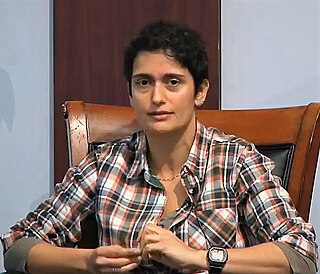
Kalipso Chalkidou is the Head of Health Finance at The Global Fund to Fight AIDS, Tuberculosis and Malaria and a Visiting Professor at Imperial College London. Previously she was Director of Global Health Policy at the Center for Global Development and Professor of Practice in Global Health at Imperial College London. Her research considers how local expertise can inform the allocation of scientific and healthcare resources.

Health politics or politics of health is an interdisciplinary field of study concerned with the analysis of social and political power over the health status of individuals.

Part of managing an infectious disease outbreak is trying to delay and decrease the epidemic peak, known as flattening the epidemic curve. This decreases the risk of health services being overwhelmed and provides more time for vaccines and treatments to be developed. Non-pharmaceutical interventions that may manage the outbreak include personal preventive measures such as hand hygiene, wearing face masks, and self-quarantine; community measures aimed at physical distancing such as closing schools and cancelling mass gathering events; community engagement to encourage acceptance and participation in such interventions; as well as environmental measures such surface cleaning. It has also been suggested that improving ventilation and managing exposure duration can reduce transmission.
Irene Akua Agyepong is a Ghanaian public health physician with the Dodowa Health Research Center and member of the Faculty of Public Health of the Ghana College of Physicians and Surgeons. Agyepong led The Lancet commission on the future of healthcare in sub-Saharan Africa.

The COVID-19 Genomics UK Consortium (COG-UK) was a group of public health agencies and academic institutions in the United Kingdom created in April 2020 to collect, sequence and analyse genomes of SARS-CoV-2 as part of COVID-19 pandemic response. The consortium comprised the UK's four public health agencies, National Health Service organisations, academic partners and the Wellcome Sanger Institute. The consortium was known for first identifying the SARS-CoV-2 Alpha variant in November 2020. As of January 2021, 45% of all SARS-CoV-2 sequences uploaded to the GISAID sequencing database originated from COG-UK.
Kirsten McCaffery is a British-Australian public health researcher who is Principal Research Fellow and Director of Research at the Sydney School of Public Health. Her research considers the psychosocial aspects of over diagnosis in healthcare. She was elected Fellow of the Australian Academy of Health and Medical Sciences in 2020.
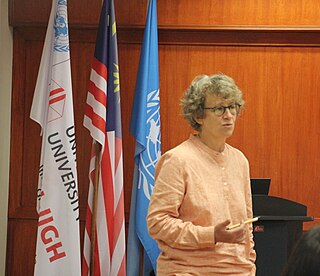
Nina Schwalbe is an American public health researcher who is the founder of Spark Street Advisors, a public health think tank based in New York City. Schwalbe specializes in vaccines. She has previously worked at Gavi, UNICEF and USAID.
The Johns Hopkins–Lancet Commission on Drug Policy and Health was a commission organized by the Johns Hopkins University and The Lancet, a peer-reviewed medical journal. The commission delivered its report in 2016, finding that the drug prohibition's harms to public health far outweighed its benefits.
References
- 1 2 3 4 5 6 7 8 9 Lane, Richard (2020-05-23). "Helena Legido-Quigley: proponent of health systems strengthening". The Lancet. 395 (10237): 1603. doi: 10.1016/S0140-6736(20)31138-7 . ISSN 0140-6736. PMC 7241970 . PMID 32446404.
- ↑ "LEGIDO-QUIGLEY Helena". sph.nus.edu.sg. Retrieved 2020-05-22.
- ↑ "Helena Legido-Quigley". Chatham House. Retrieved 2020-05-22.
- ↑ "Helena Legido-Quigley". Forum Économique Mondial (in French). Retrieved 2020-05-22.
- ↑ Commission for Universal Health Chatham House.
- ↑ Legido-Quigley, Helena; Pocock, Nicola; Tan, Sok Teng; Pajin, Leire; Suphanchaimat, Repeepong; Wickramage, Kol; McKee, Martin; Pottie, Kevin (2019-09-16). "Healthcare is not universal if undocumented migrants are excluded". BMJ. 366: l4160. doi: 10.1136/bmj.l4160 . ISSN 0959-8138. PMC 6741752 . PMID 31527060.
- ↑ Khan, Mishal Sameer; Lakha, Fatim; Tan, Melisa Mei Jin; Singh, Shweta Rajkumar; Quek, Rina Yu Chin; Han, Emeline; Tan, See Mieng; Haldane, Victoria; Gea-Sánchez, Montserrat; Legido-Quigley, Helena (2019-02-09). "More talk than action: gender and ethnic diversity in leading public health universities". The Lancet. 393 (10171): 594–600. doi: 10.1016/S0140-6736(18)32609-6 . hdl: 10459.1/69597 . ISSN 0140-6736. PMID 30739695.
- 1 2 "Our thought leaders are not leading when it comes to gender equality". World Economic Forum. Retrieved 2020-05-22.
- ↑ Clarín.com (16 April 2020). ""Esta crisis nos enseña que hay que invertir en los sistemas de Salud y no recortar gastos"". www.clarin.com (in Spanish). Retrieved 2020-05-22.
- ↑ "Helena Legido-Quigley: "Austerity saps the ability of a health system to respond to COVID-19"". European Science-Media Hub. 2020-04-07. Retrieved 2020-05-22.
- ↑ Legido-Quigley, Helena; Mateos-García, José Tomás; Campos, Vanesa Regulez; Gea-Sánchez, Montserrat; Muntaner, Carles; McKee, Martin (2020-05-01). "The resilience of the Spanish health system against the COVID-19 pandemic". The Lancet Public Health. 5 (5): e251–e252. doi: 10.1016/S2468-2667(20)30060-8 . ISSN 2468-2667. PMC 7104264 . PMID 32199083.
- ↑ Linde, Pablo (2020-03-23). ""Teníamos un sistema que funcionaba, pero los recortes se van a notar en esta crisis"". EL PAÍS (in Spanish). Retrieved 2020-05-22.
- ↑ Minder, Raphael (2020-04-16). "Counting Bodies and Pointing Fingers as Spain Tallies Coronavirus Dead". The New York Times. ISSN 0362-4331 . Retrieved 2020-05-22.
- ↑ Journal of Migration and Health Editorial Board.